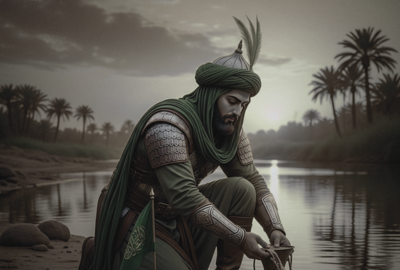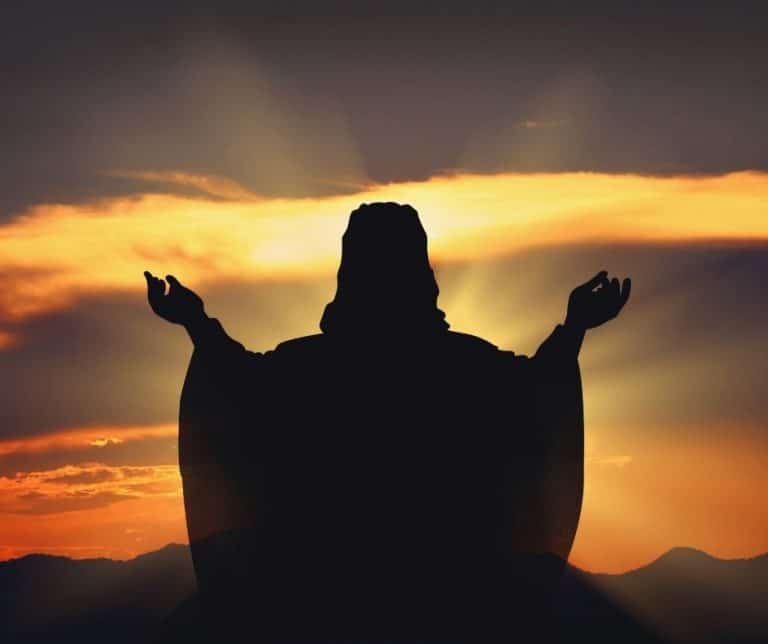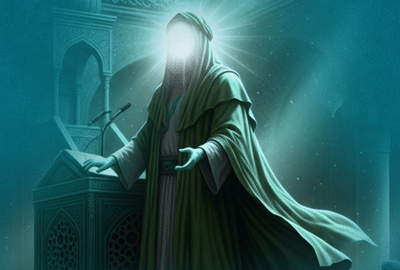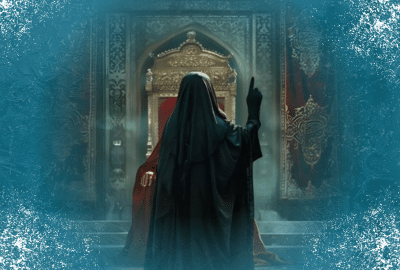5 Timeless Lessons from the Tragedy of Karbala
The tragedy of Karbala, occurring over 1,300 years ago, is not just a chapter in Islamic history. It is a vessel containing lessons that transcend time and place.
Imam Hussain (as) and his army stood as guiding lights. Through their sacrifices, they left behind a powerful legacy of moral and spiritual significance.
Here are five timeless lessons from Karbala that can inspire our actions.
1. Be a Follower Before a Leader
True leadership begins with sincere following. Before Imam Hussain (as) became the Imam, he was a follower of:
- His grandfather, Prophet Muhammad (saww).
- His father, Imam Ali (as).
- His brother, Imam Hassan (as).
He carried forward their example when he became the Imam. His family and his companions followed him with loyalty, trust, and love.
Despite death being promised, they remained steadfast to protect the son of Sayyida Fatima Al-Zahra (sa). They did not seek glory; they sought to uphold the truth. Their loyalty earned them eternal honour.
Imam Hussain (as) is reported to have said, “I do not know companions more loyal and better than my companions. I have never found household members more excellent in observation of bonds of relationship than my Household (as). Allah (swt) will reward you graciously on my behalf.”
(Maqtal al-Hussain)
2. You Are Never Too Young to Show Courage
Some of the key figures we grieve for are the youths who were martyred on the Day of Ashura. Amongst them were:
- Ali Al-Akbar (as), the son of Imam Hussain (as). Learn more about his martyrdom here.
- Qasim (as), the son of Imam Hassan (as). Read more about his sacrifice here.
- Aun (as) and Muhammad (as), the sons of Sayyida Zaynab (sa).
- Ali Al-Asghar (as), the 6-month-old son of Imam Hussain (as).
Even with death being guaranteed, they showed their courage throughout the journey and in the Battle of Karbala.
Qasim (as) asked, “Am I too included in the list of the martyrs?”
Imam Hussain (as) replied with a question, “O my dear son! How do you consider death (martyrdom in the way of Allah) to be near you?”
Qasim (as) replied, “It is sweeter than honey.”
Imam Hussain (as) then said, “Verily, by Allah (swt)! May your uncle be your ransom! You are one of them, who shall be martyred along with me after having fallen prey to a severity, and my (infant) son Abdullah (Ali Al-Asghar) shall be martyred too.”
3. It is Never Too Late to Turn Back to Allah (swt)
A key lesson we learn from the Tragedy of Karbala is that no matter how far someone has gone off the path.
In Surah az-Zumar, Allah (swt) says, “(O Muḥammad,) say (on My behalf), ‘O My servants who have transgressed against their own selves, do not despair of Allah’s (swt) mercy; verily Allah (swt) forgives all the sins since He indeed is the Most-Forgiving, the Merciful.” (39:53)
Two key figures we see for this are:
- Hurr ibn Yazid al-Riyahi
- Zuhayr ibn al-Qayn
Hurr had stopped Imam Hussain (as) and the Caravan of Honour from proceeding towards Kufa. He was instructed to take him to Ubaydullah ibn Ziyad (la) and not start a battle.
When Hurr realized that Ibn Ziyad was planning to kill Imam Hussain (as), he found himself torn between heaven and hell. After this internal debate, Hurr chose to salvage his soul.
Once a part of Yazīd’s army, he repented to Imam Hussain (as) and switched sides, becoming one of the martyrs of Karbala.
Learn more about Hurr’s martyrdom here.
Another example is of Zuhayr ibn al-Qayn. Zuhayr was a supporter of the third caliph and believed that Imam Ali (as) was responsible for his murder.
Zuhayr and his wife were travelling a similar route as Imam Hussain (as) and his caravan from Mecca to Iraq. Zuhayr would purposely try to avoid Aba Abdillah (as) in this journey.
At one point, the two caravans would stop near the same spot. Imam Hussain (as) requested a meeting with Zuhayr. Although Zuhayr was hesitant to accept, his wife convinced him to meet the Imam (as).
Nobody knows what was said in that meeting, but it was enough for Zuhayr to join Imam Hussain’s (as) caravan. He would go on to be one of the martyrs in Karbala as well.
These two examples are a beacon for anyone seeking forgiveness and change.
4. Recognizing the Imam of Your Time
Recognizing the Imam of one’s time is a prime responsibility for us.
Prophet Muhammad (saww) is reported to have said, “Whoever dies without knowing his Imam has died a pagan death.” (Bihar al-Anwar, V. 23)
Many in Yazīd’s army knew who Imam Ḥussain (as) was (i.e. the grandson of Prophet Muhammad (saww), yet they let power, pride, greed, and fear blind their hearts. They heard his words and knew his lineage, but they chose not to follow him.
To recognize the Imam on one’s time, intellect is not the only thing required. It also requires spiritual clarity and moral courage. Through this, we can also gain knowledge of Allah (swt).
When asked how to attain knowledge of Allah (swt), Imam Hussain (as) is reported to have said, “It is for the people of every time to know their Imam, obedience to whom is mandatory.”
5. Always Stand for Truth and Justice
One of the hardest things to do is to stand up for truth and justice. It can cost us many things – from our friends, to our livelihood, to even our lives.
However, it is necessary to stand up for the truth and justice, even if it’s to our detriment.
In Surah al-Ma’idah, Allah (swt) tells us, “O you who believe! Be maintainers of justice (and bearers of witness) for (the sake of) Allah (swt). Let not hatred of a people incite you not to be equitable; be (just and) equitable—that is nearer to piety. And guard yourselves against displeasing Allāh, surely Allah (swt) is aware of what you do. (5:8)
Imam Ali (as) is reported to have said, “The best of people in the sight of Allah (swt) is he who likes to act according to what is right, even if it brings him loss and misery, more than what is wrong, even if it brings him profit and increase of wealth.” (Nahjul Balagha, Sermon 125)
Aba Abdillah (as) didn’t rise for power, but to reform a society that had been corrupted and to revive the values of Islam. He rose to stand up against falsehood and preserve the religion of Allah (swt) and the Prophet (saww).
Imam Hussain (as) is reported to have said, “I never revolted in vain, as a rebel, or as a tyrant, but I rose seeking reformation for the nation of my grandfather Muhammad (saww). I intend to enjoin good and forbid evil, to act according to the traditions of my grandfather (saww), and my father Ali ibn Abi Talib (as).” (Bihar al-Anwar, V. 44)
Imam Hussain’s (as) sacrifice teaches us that standing for truth is a duty – even if it costs everything.
Conclusion
Karbala is not just a story of sorrow. It is a story of strength, sacrifice, and unwavering faith.
The lessons it offers are not confined to the sands of history; they are meant to shape how we live, lead, and believe today.
FAQs
The lessons of Karbala – faith, loyalty, courage, justice, and repentance – are universal. Imam Hussain (as) and his companions stood for principles that continue to inspire individuals and communities today, regardless of time or place.
Imam Hussain (as) was a devoted follower of his grandfather, father, and brother before his imamate. Similarly, his companions showed loyalty and obedience before they became leaders in their own right through their sacrifice. It teaches us that good leadership is rooted in sincere following of truth.
Yes. Many brave youths such as Qasim ibn Hassan (as), Ali al-Akbar (as), and even the infant Ali al-Asghar (as) were present and martyred. Their stories teach us that age is not a barrier when one stands for truth and faith.
Yes. Hurr ibn Yazid’s story shows that sincere repentance, even moments before death, can lead to salvation. Islam teaches that Allah’s (swt) mercy is vast and always open to those who truly turn back to Him (swt). (Qur’an 39:53).
It means to know, follow, and obey the divinely appointed guide of your era. Recognizing the Imam isn’t just intellectual – it requires faith, spiritual clarity, and moral courage. Many in Karbala failed to support Imam Hussain (as) despite knowing who he was.
For us, this is to recognize Imam Mahdi (ajtfs). This can be done by studying his life and ensuring our actions are in line with Islam.
Aba Abdillah (as) sacrificed everything to uphold truth and fight against oppression. His stand teaches us that justice is not optional; it’s a moral and spiritual obligation, even if it comes at a great cost.







